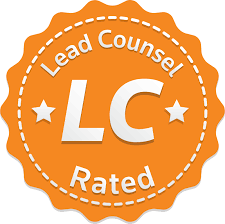Joint Custody
Joint Custody
Joint custody, custody visitation, and child support
are often the most contested issues in family law. In most cases, developing a joint custody plan is extremely important for the child’s life now and for their future. The divorce
lawyers at Bergman & Yiangou
place your child’s needs and interests as the top priority to ensure that the outcome of the joint custody agreement is in the best interest of your child.
What is joint custody?
Joint custody (also called shared parenting) occurs when the court allocates the parental rights and responsibilities for the care of a child to both parents. The court will also issue an order requiring the parents to jointly share all or some of the physical and legal care of the parties’ child, which must be in compliance with a court-approved joint custody plan.
How do I request joint custody?
Child custody
can be requested by one or both parents through the court by motion. The filing party must also accompany said motion with a joint custody plan. The court will then review the motion and joint custody plan to determine if issuing a joint custody order is in the best interest of the child. If the plan is not in the best interest of the child, the court will require modifications to the plan until it meets the child’s best interest.
What is joint custody?
Joint custody (also called shared parenting) occurs when the court allocates the parental rights and responsibilities for the care of a child to both parents. The court will also issue an order requiring the parents to jointly share all or some of the physical and legal care of the parties’ child, which must be in compliance with a court-approved joint custody plan.
How do I request joint custody?
Child custody
can be requested by one or both parents through the court by motion. The filing party must also accompany said motion with a joint custody plan. The court will then review the motion and joint custody plan to determine if issuing a joint custody order is in the best interest of the child. If the plan is not in the best interest of the child, the court will require modifications to the plan until it meets the child’s best interest.
How does the court determine the best interest of the child?
The court will review several factors when determining the best type of custody for the child. These factors include but are not limited to:
- The parents’ physical, legal, sole or joint custody wishes
- The child’s wishes, assuming the child has the ability to have a preference
- The relationship and interaction of the child with both parents and any relatives or siblings that will be involved in the upbringing of the child
- The ability of the child to adapt and adjust to its home, school, and community
- The physical and mental health of the parents and all siblings or relatives that will be involved in the minor child’s upbringing
- The parents lifestyle (e.g. whether or not the child will be exposed to second hand smoke with one parent or another, whether one parent drinks alcohol in excess around the child)
- The consistency of a parent’s past ability to make support payments
- The ability of a parent to provide the basic necessities for the child, including school supplies, transportation, food, shelter, clothing, and medical care
- Past incidents of child abuse or neglect committed by a party
- Plans of one parent to relocate to another state or country
- The ability of the parents to cooperate and make decisions concerning the child
- The ability of the parents to encourage the sharing of love, affection and contact between the child and the other parent
- The past history and potential for child abuse, spousal abuse, domestic violence, or parental kidnapping by either parent
- The distance between the two parents
- Any recommendations made by the child’s GAL (guardian ad litem)
What must be included in a joint custody plan?
Joint custody
plans must address all relevant aspects relating to the care of the parties’ child. Relevant aspects to the care of the child include parenting time, decision-making, overnight and visitation arrangements, communication and decision-making between the parents, medical insurance for the child, dependency deductions for tax purposes, contact with siblings and relatives, social and school activities, child support, annual vacations and school breaks, and transportation and exchanges of the child between parents.
Contact the child custody attorneys at Bergman & Yiangou to help establish a joint custody solution that is best for you and your children. For a free consultation about divorce, dissolution and child custody, call 614-279-8276.
With two offices in Columbus, OH, Bergman & Yiangou Attorneys at Law
represent clients throughout central Ohio and in the following cities and communities; Franklin County, Fairfield County, Delaware County, Licking County, Madison County, Pickaway County and more!
Content, including images, displayed on this website is protected by copyright laws. Downloading, republication, retransmission or reproduction of content on this website is strictly prohibited. Terms of Use
| Privacy Policy




